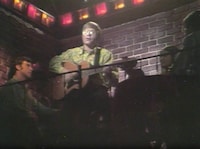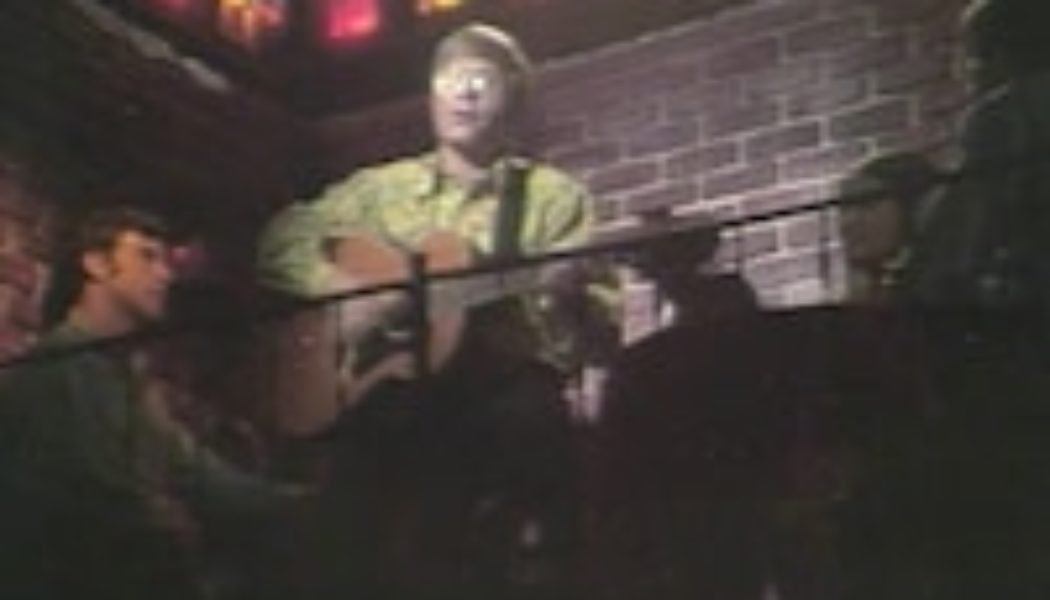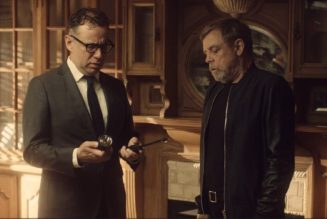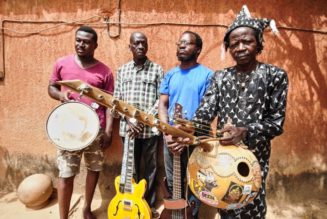
As a student involved in student government at Northern Virginia Community College in Annandale during the 1969-70 school year, I had an unusual opportunity. Several students were asked to participate in filming a John Denver TV pilot. My recollection is the concept was a series hosted by Denver with the setting to be the Cellar Door in Georgetown. The dozen or so students showed up at a studio somewhere near Alexandria. A set gave the appearance of the Cellar Door. For perhaps two hours John Denver sat and stood on the stage and repeatedly played his acoustic guitar, singing a song, “Something to Sing About.” I also recall his either describing or reciting that the first episode would feature Peter, Paul and Mary. I have not found any reference to the show. Denver’s career skyrocketed not long thereafter and I have assumed this project simply withered on the vine.
— David Grimes, The Villages, Fla.
This particular project may have withered on the vine, but John Denver didn’t. And the towheaded troubadour had a special connection to Washington.
The former Henry John Deutschendorf Jr. (it was probably a good idea to change his name) had grown up all over the country as an Air Force brat. When he was 13, his parents bought him a guitar. It served as a good ice breaker when he moved to a new school.
In 1965, Denver dropped out of college — Texas Tech, where he was studying architecture — to join the Chad Mitchell Trio, a folk group that upon Denver’s arrival had to change its name to the Mitchell Trio. (Denver had replaced founding member Chad Mitchell.)
The trio eventually disbanded, but Denver had established himself as a standout presence, writing “Leaving On a Jet Plane” — a hit for Peter, Paul and Mary — and coming under the wing of producer Milt Okun.
Okun had worked with the Chad Mitchell Trio. He produced Denver’s solo debut, “Rhymes & Reasons,” released in August 1969. A year earlier, Denver had recorded three numbers for a compilation of traditional folk songs organized by Okun. The name of that three-record set was “Something to Sing About.”
“Something to Sing About” was also the name of a prospective show centered around the Cellar Door, a famed and much-loved music venue at 34th and M streets NW. And it was the name of the song Denver performed at the opening of the show’s pilot.
Answer Man knows this because he’s seen a videotape of that pilot. It’s in the collection of Universal Media Inc., an amazing archive of music material. The company — run out of Alexandria, Va., by Eric Kulberg — does research rights and permission and clearances for documentaries and museum exhibitions.
The pilot begins with a graphic that reads “Recorded live at the Cellar Door, Washington, D.C.” That’s partially true. An in-house information card before that notes the show was produced by Logos Teleproductions. Logos was at 3620 S. 27th St. in Arlington, where WETA would later find a home.
Kulberg and former Washington Post pop music critic Richard Harrington viewed the pilot and had a few observations. They felt the performance of Peter, Paul and Mary probably was shot at the Cellar Door, though a blue curtain had been put up along the back wall, possibly to make the performers more visible.
The introductory scenes with Denver, however, appear as if they were edited in after being shot elsewhere, most likely at the Logos studio on a faux Cellar Door set.
“Something to Sing About” was produced by Dick Cerri and directed by David Silvian. Silvian had worked in public television, including a stint with “Mr. Rogers’ Neighborhood.” Cerri was a D.C. disc jockey who presented a show called “Music Americana.”
“I have the tape only because Dick Cerri produced it,” Kulberg said. “His brother Bill Cerri was my housemate.”
The idea was that a different collection of folk acts would appear each week, taped when they were in town playing the Cellar Door and introduced by Denver.
“Something to Sing About” was shot about the time that Denver got a new manager: Jerry Weintraub.
Kulberg suspects Weintraub had a different plan: To book Denver on network TV shows rather than have him front his own syndicated show.
“I think he was right,” Kulberg said. “I would have loved for Dick to have done it, but Weintraub was correct in that assessment. That’s why you have a good manager.”
About a year after taping the moribund pilot, Denver was staying with Bill Danoff and Taffy Nivert of the D.C. duo Fat City while playing the Cellar Door. One night they played him an unfinished song inspired by a drive on Clopper Road in Montgomery County, Md.
The trio stayed up late to complete Denver’s first hit: “Take Me Home, Country Roads.”
Helping Hand
The Washington Post Helping Hand is our annual fundraising drive for three worthy local charities: Bread for the City, Friendship Place and Miriam’s Kitchen. Each of them works to end homelessness and hunger in Washington. Won’t you give? To donate, visit posthelpinghand.com.









